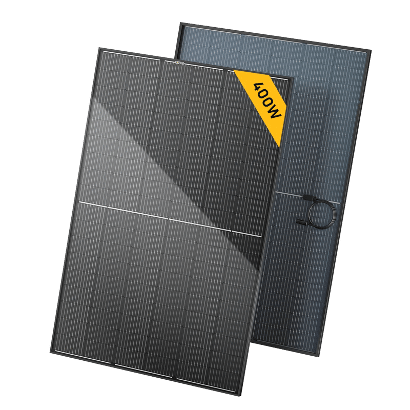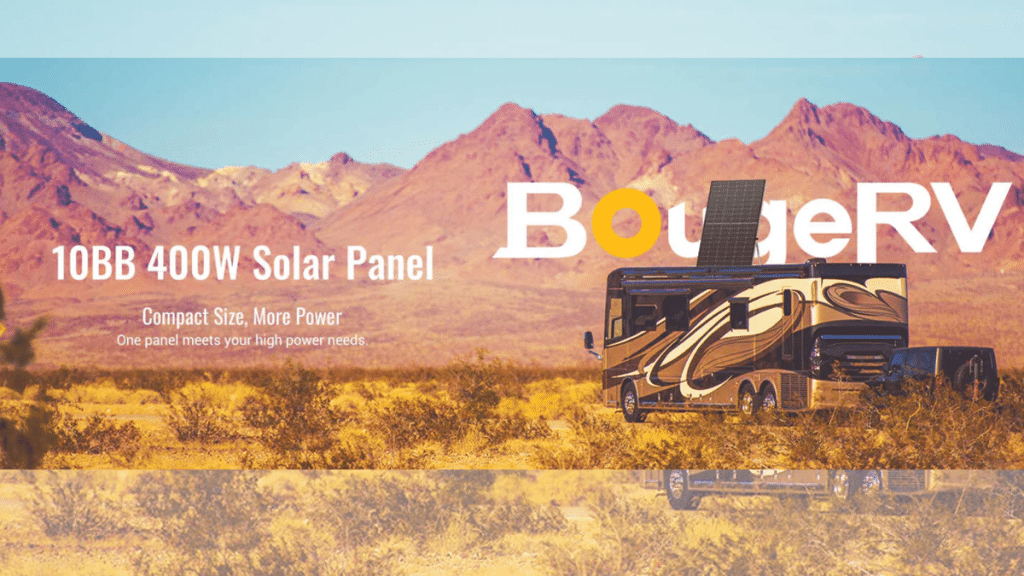As the demand for renewable energy accelerates worldwide, solar technology continues to evolve—not just in how it’s used, but in how it’s built. Among the many innovations reshaping the solar market, two technologies are standing out: the 400-watt solar panel and the 400W flexible solar panel. Both offer high-output energy solutions, but they serve different needs, environments, and users.
These panels are pushing the boundaries of what’s possible for both stationary and mobile energy applications. Whether you’re powering a cabin in the woods or outfitting a campervan for off-grid living, understanding the capabilities and differences between these panels is key to making the right energy choice.
The Power Behind 400-Watt Solar Panels
A 400-watt solar panel is considered a high-capacity option in the world of residential and commercial solar. These panels can generate a significant amount of electricity in a relatively compact footprint, making them ideal for maximizing power production in limited space.
Here’s why they matter:
- High Output: Producing up to 400 watts per hour under optimal conditions, these panels can deliver enough energy to run essential household appliances, charge batteries, or power systems in remote areas.
- Space Efficiency: With advancements in cell design and layout, manufacturers have managed to pack more power into fewer panels. This is especially helpful for homeowners or landowners with limited space for installations.
- Cost Efficiency Over Time: Though the initial investment may be higher compared to smaller panels, a 400-watt unit often reduces the total number of panels needed to reach your energy goals. Fewer panels mean fewer mounting brackets, less wiring, and potentially lower labor costs for installation.
These BougeRV 400W solar panels are ideal for permanent setups—homes, cabins, remote facilities, and off-grid power stations—where maximum energy yield and long-term durability are priorities.

Where Flexible Panels Shine: The 400W Flexible Solar Panel
While rigid panels like the 400-watt option excel in fixed installations, the 400W flexible solar panel brings mobility and adaptability into the equation. Designed to bend and conform to uneven surfaces, this panel type opens the door to solar integration in places where traditional glass-and-frame designs just won’t fit.
Let’s look at the advantages:
- Lightweight and Low-Profile: A flexible solar panel weighs far less than its rigid counterpart. This makes it ideal for mobile setups—like boats, RVs, tents, or overlanding vehicles—where minimizing weight is crucial.
- Curved Surface Installation: Whether you’re attaching panels to a rounded vehicle roof or a tent canopy, flexibility allows for a snug fit and improved aesthetics without drilling or custom racks.
- Easy Transport and Storage: These panels can be rolled or stacked when not in use, making them perfect for temporary power setups, camping, and emergency preparedness.
Although slightly less efficient than rigid panels under certain conditions, 400W flexible solar panels are invaluable in applications where weight, shape, and portability matter more than maximum energy conversion.
Who Needs These Panels—and Why?
1. Homeowners and Off-Grid Properties
A 400-watt solar panel is an excellent choice for homeowners looking to reduce reliance on grid electricity or to build out a comprehensive off-grid system. A few of these panels can generate enough power to meet the daily needs of a small household, especially when combined with battery storage.
2. Mobile Adventurers and RV Users
For nomads and travelers, the 400W flexible solar panel is a game-changer. It allows continuous recharging of batteries that power everything from lights and fans to water pumps and fridges. Its ability to hug the curves of an RV roof or marine deck makes it both functional and discreet.
3. Emergency and Disaster Response
In remote or disaster-hit areas where infrastructure is compromised, both types of panels can provide rapid deployment of off-grid energy. The rigid panel offers sustained, high-output performance, while the flexible one delivers quick and easy setup with minimal tools or mounting requirements.
4. Construction and Remote Job Sites
Sites without direct access to grid power can use these panels to charge tools, operate communication equipment, or light up work areas. The combination of high-wattage output and flexibility enables users to tailor their setups to the job at hand.
Choosing Between Rigid and Flexible
While both options deliver 400 watts of solar power, choosing between them often depends on your specific goals.
| Feature | 400W Rigid Panel | 400W Flexible Panel |
| Weight | Heavier | Lightweight |
| Installation | Requires mounting structures | Adheres or straps to the surface |
| Efficiency | Typically higher | Slightly lower |
| Durability | Excellent for static use | Great for mobile use |
| Flexibility | None | High |
| Ideal Use Case | Fixed solar arrays | RVs, boats, tents, curved roofs |
The Bigger Picture: Sustainability Through Choice
Both the 400-watt solar panel and the 400W flexible solar panel reflect the diversity of modern energy needs. From off-grid homesteads to backcountry exploration, solar energy is no longer limited by static designs or rigid installations. As panel technology improves and becomes more adaptable, users gain more freedom to live, work, and travel without sacrificing power reliability.
This evolution is critical as we face global energy challenges. By offering robust solutions for both stationary and mobile applications, these panels help make solar energy more accessible and practical for people from all walks of life.
Final Thoughts
In a time when resilience, sustainability, and independence are more important than ever, high-output panels like the BougeRV 400-watt solar panel and the 400W flexible solar panel offer two powerful paths forward. Whether you need to power a homestead or fuel your next adventure, the right solar solution is no longer a one-size-fits-all equation—it’s tailored to fit how you live.
Understanding the strengths of each panel type helps you make smarter energy decisions that last for the long haul, wherever the sun takes you.
